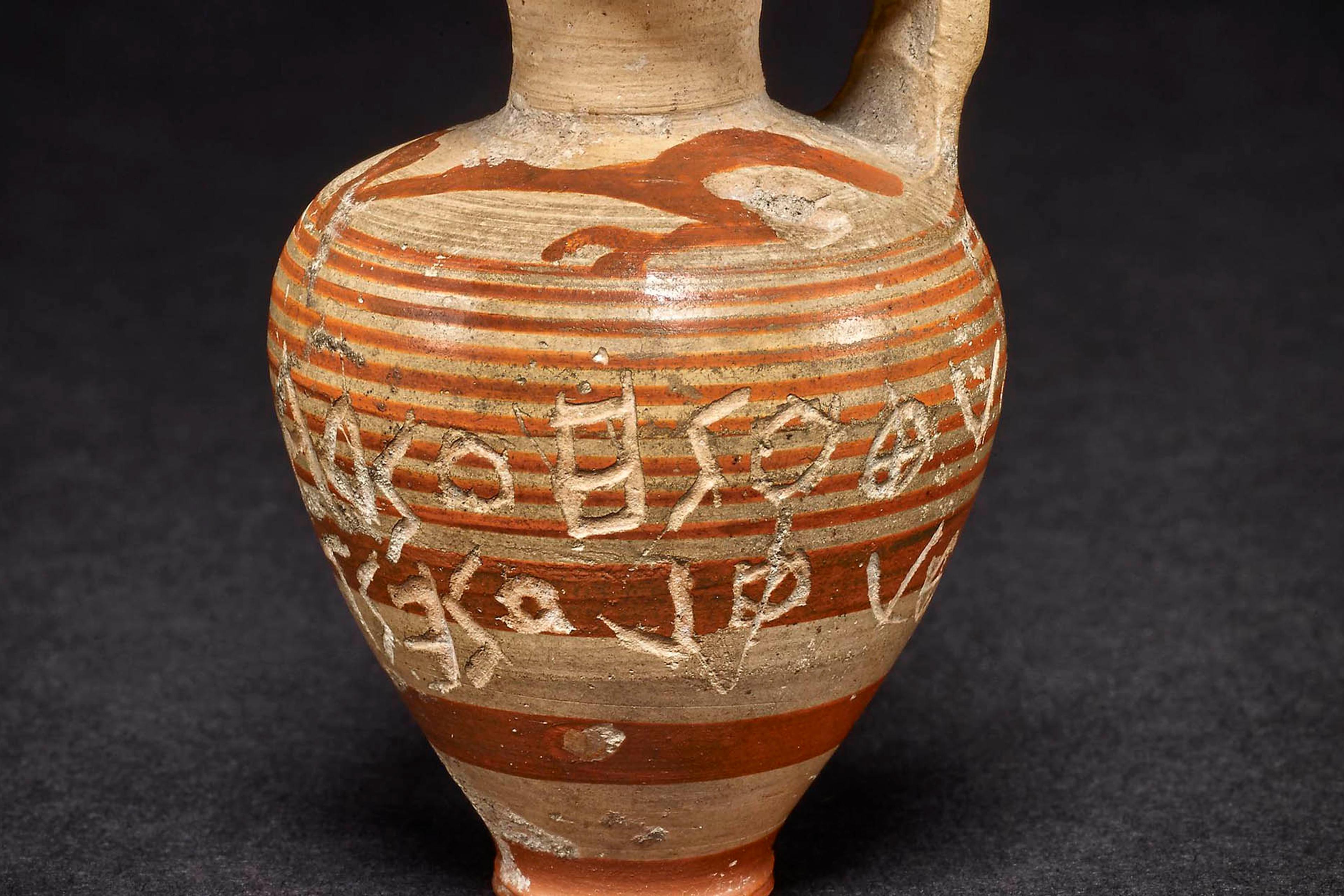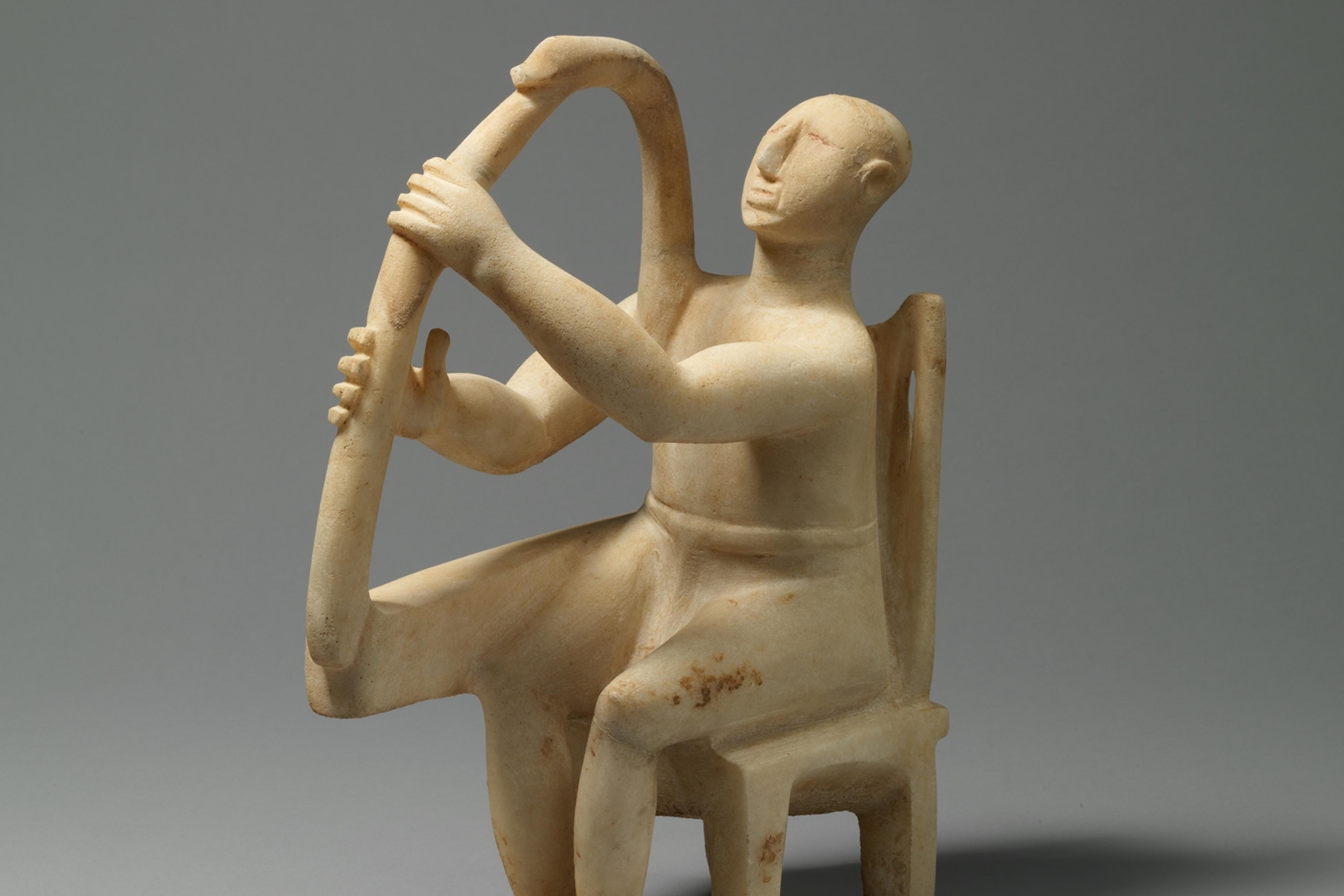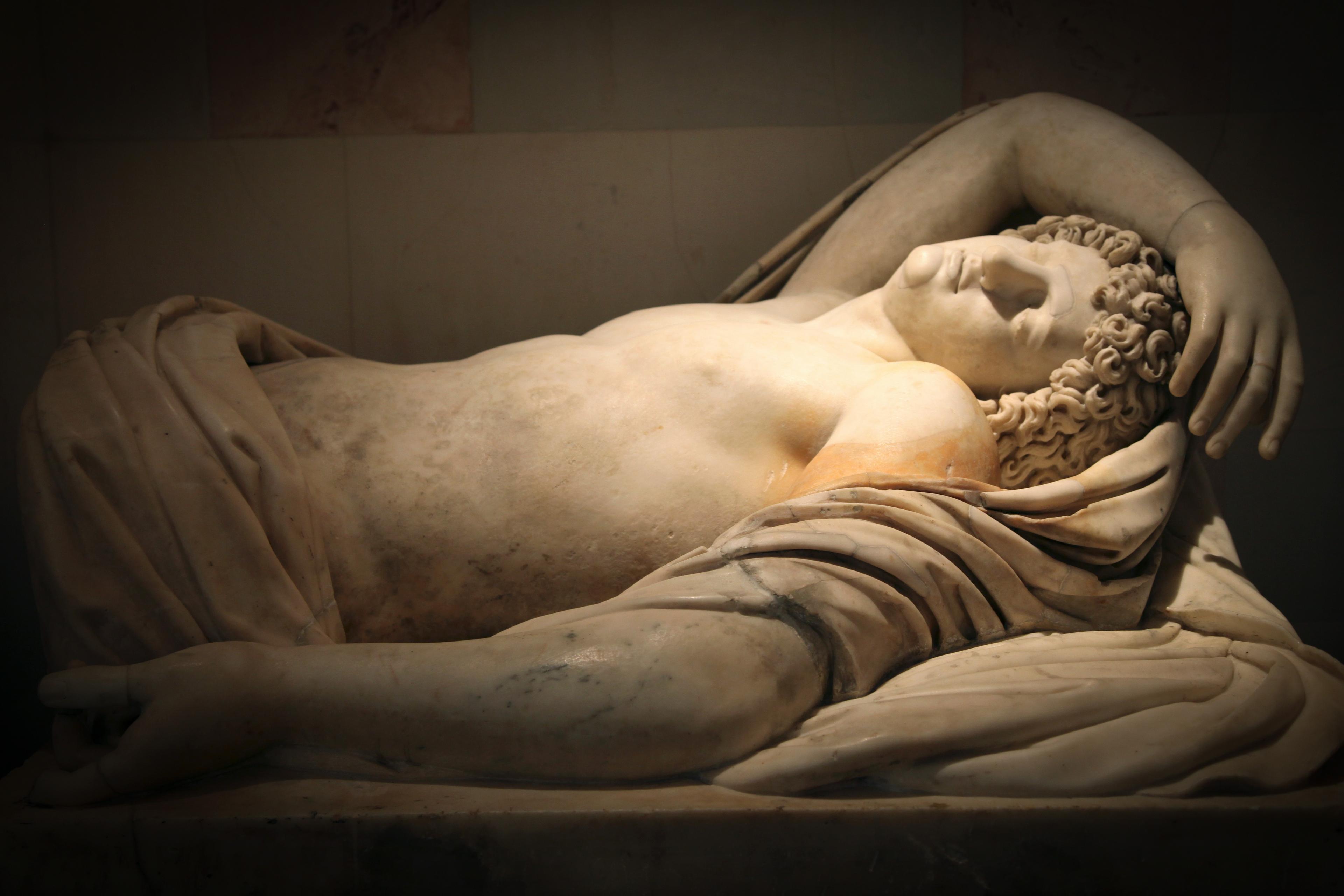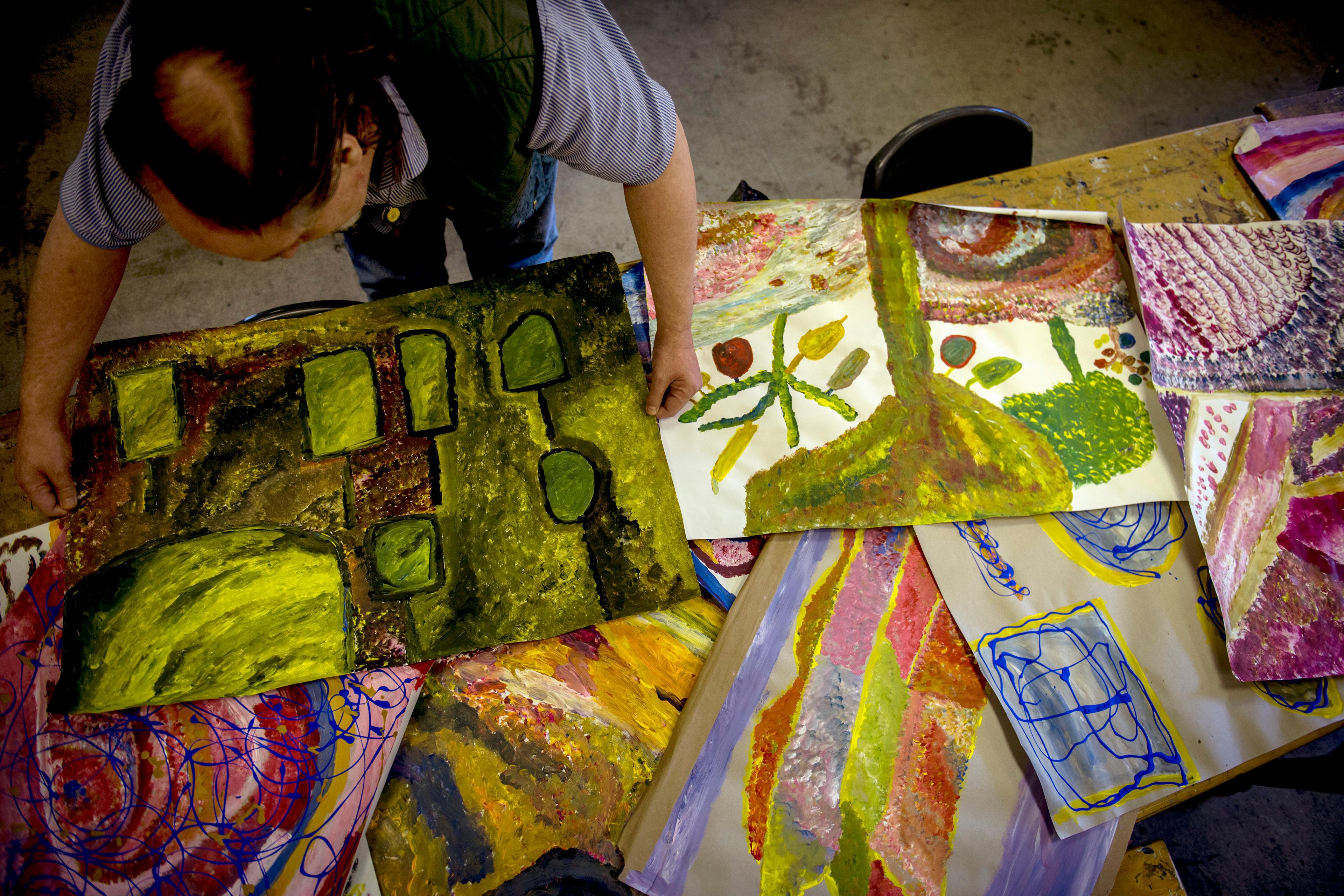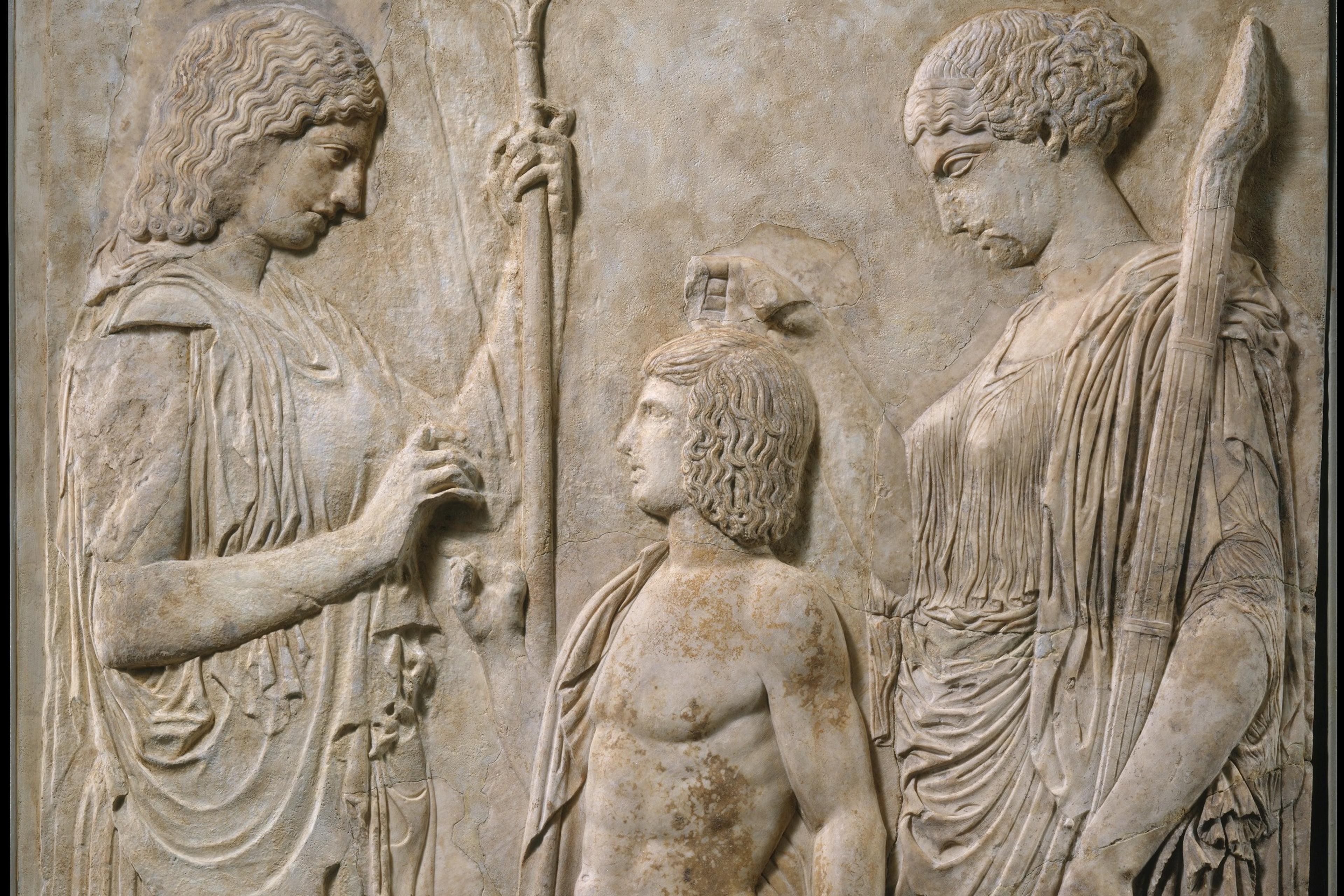What’s the point of senators making laws now?
Once the barbarians are here, they’ll do the legislating.
– from ‘Waiting for the Barbarians’ (1904) by Constantine P Cavafy
Laistrygonians, Cyclops,
angry Poseidon – don’t be afraid of them:
you’ll never find things like that on your way …
– from ‘Ithaca’ (1911) by Constantine P Cavafy
An entrancing whirlwind of spoken-word poetry and avant-garde original music, this performance from April 2023 features the inimitable US artist Laurie Anderson reinterpreting two works by the Greek poet Constantine P Cavafy (1863-1933). In the first poem, what seems to be a group of ancient Roman elites assembled in the Forum await – and see their routines paralysed by – the imminent arrival of sieging outsiders. In contrast, the second poem makes for a warm and inviting coda, depicting life as a sublime journey while it loosely traces Odysseus’ return home from the Trojan War in Homer’s Odyssey.
At the outset, Anderson characterises both poems as being ‘about expectations’, imbuing them with renewed meaning in our own uncertain moment. The artist moves between her signature sing-talk vocal style and electronic violin as she performs, with an orchestra and chorus in accompaniment. These sounds, along with the setting – Saint Thomas Church in New York City – lend the adaptation of these century-old works a timeless resonance.
Via Open Culture
